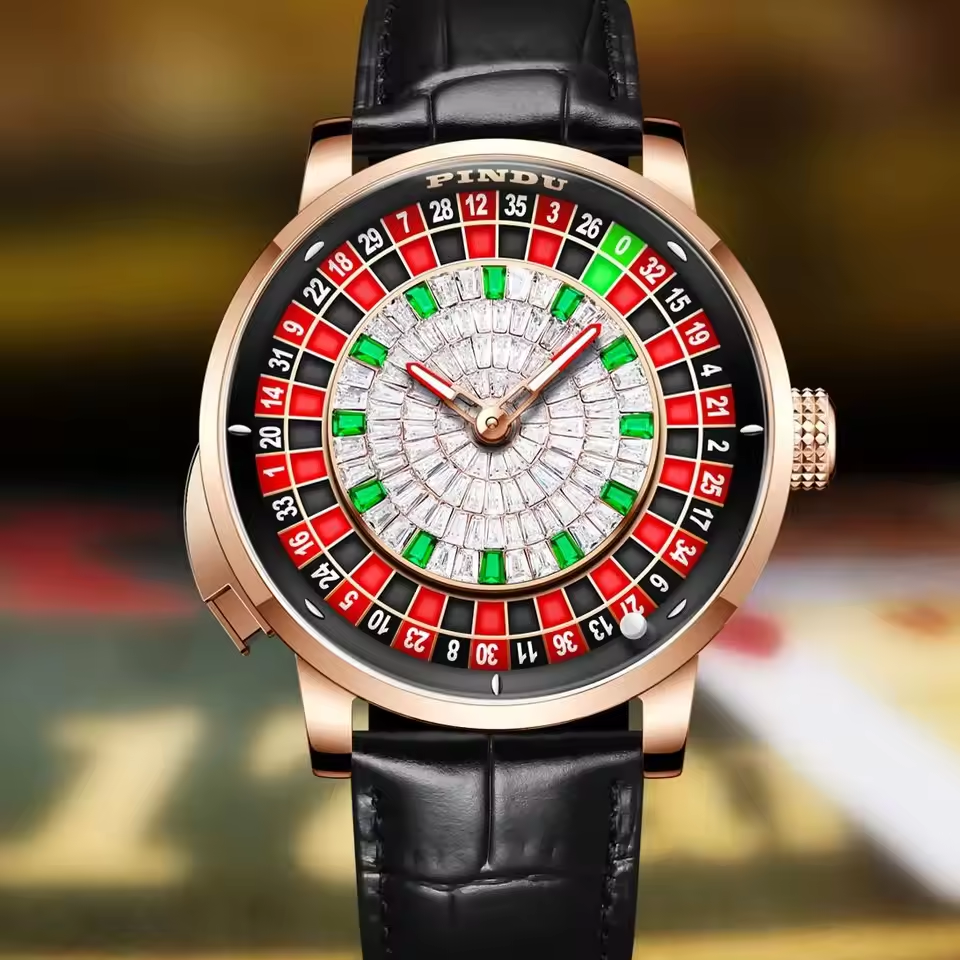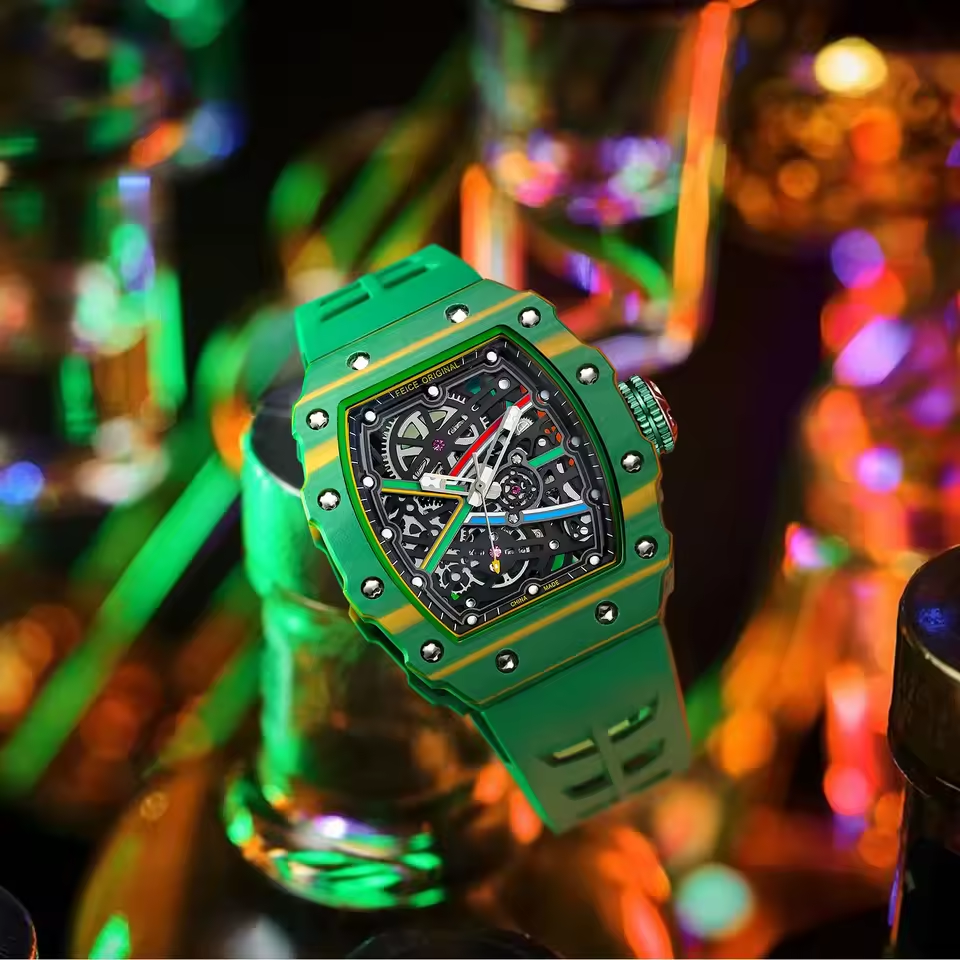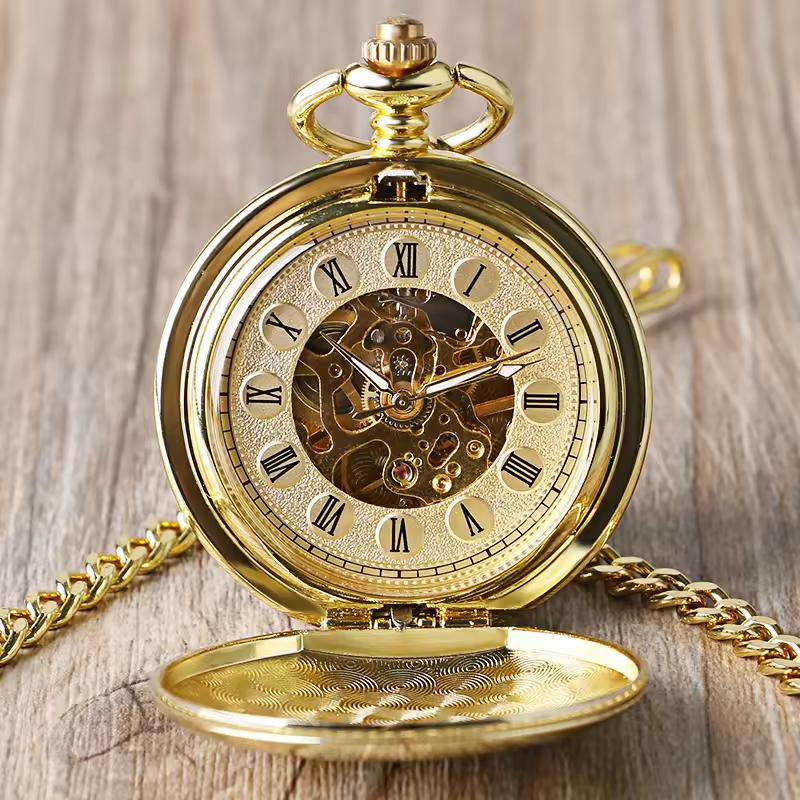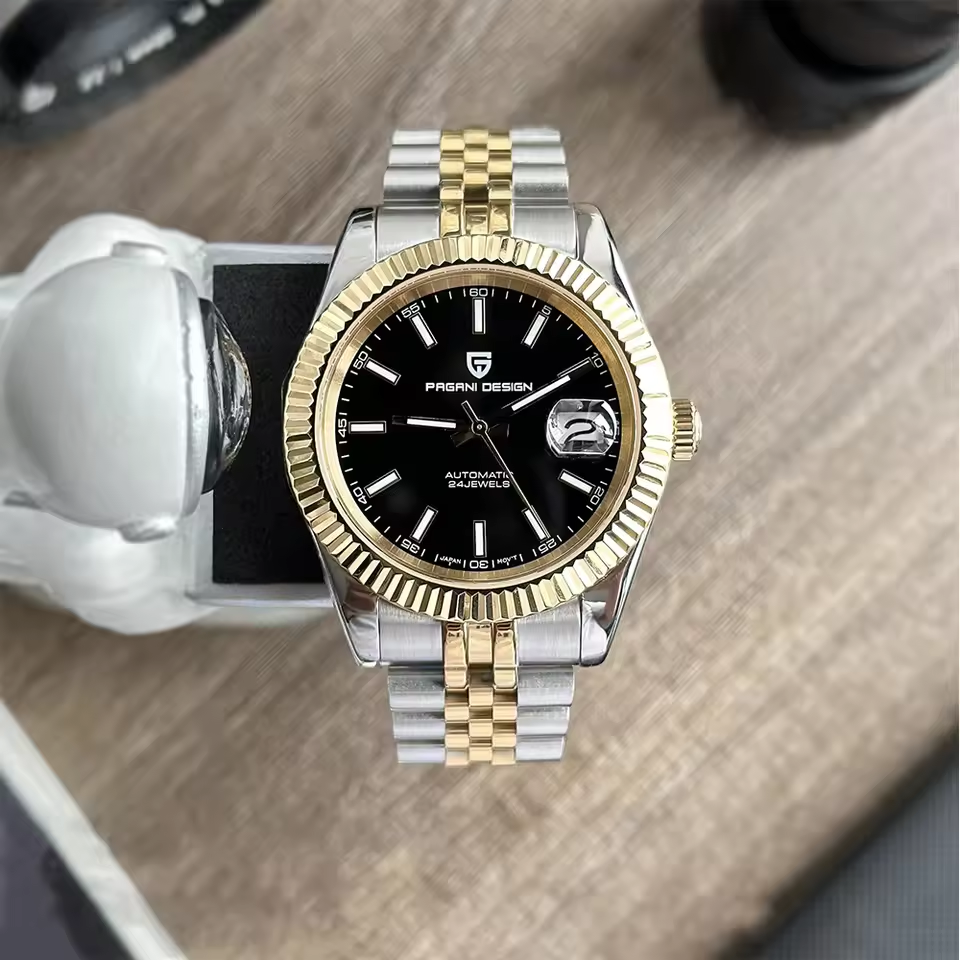Introduction to Watch Types
When it’s time to buy a watch, the choice can be tough. It’s not just about picking a watch that looks good. You need to decide between a mechanical watch vs quartz watch. Both have their own features and fans.
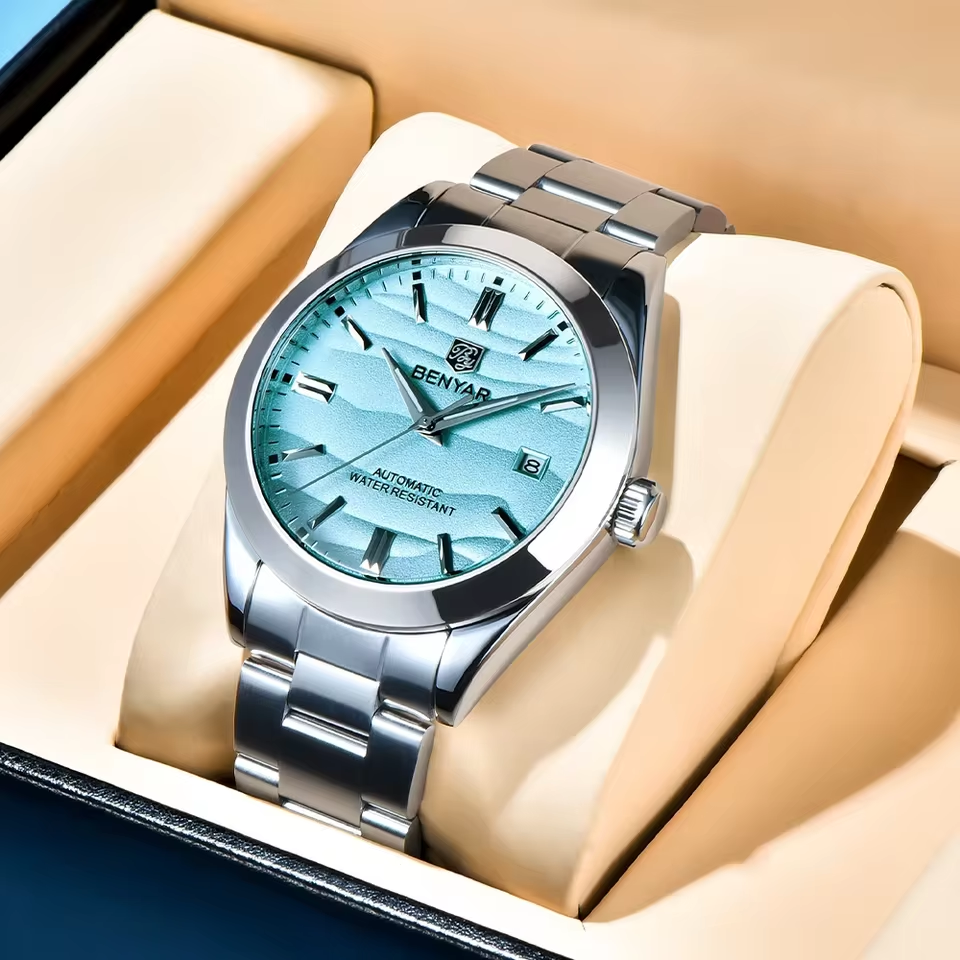
Mechanical watches have gears and springs. They need winding to keep ticking. But they offer a classic feel that watch lovers cherish. These watches show skill and tradition in their making.
Quartz watches use a battery. They have a piece of quartz inside that vibrates. This is what keeps the time so accurate. They are practical and good for everyday use.
People look at many things when choosing a watch. Some think about how long the watch will last. Others care more about how precise it is. There are those who want a watch to make a style statement. Then, there’s the cost to think about, and these days, how green the watch is matters too.
This blog will dive into these points. We’ll explore mechanical watch vs quartz in detail. We’ll look at how they work, how they last, and what they mean for your pocket. By the end, you’ll know which type fits your lifestyle best.
The Mechanics of a Mechanical Watch
The inner workings of a mechanical watch are a marvel of craftsmanship. Here’s how they tick. At the heart lies the mainspring. This coiled strip of metal powers the watch. When wound, either by hand or an automatic rotor, it releases energy slowly. This energy moves the gears.
The gears then turn the hands of the watch. A regulating mechanism, often a balance wheel, keeps the time even. It works with a hairspring to tick at set intervals. Think of this duo as the watch’s heartbeat.
Mechanical watches do not need batteries. This is because of the intricacy of their design. They come to life through a symphony of tiny parts, working in unison. The movement can be complex. It’s often called ‘calibre’. Each calibre is unique to its creator. Watchmakers sign their art with these precise movements.
But these tiny parts require care. They should see a watchmaker every few years for service. The gears need oiling. The springs may need adjustments. It’s a fine balance to keep a mechanical watch precise.
Owners of mechanical watches take pride in this complexity. They enjoy the ritual of winding and the smooth sweep of the second hand. It’s a connection to tradition and human craft. Choosing a mechanical watch is about valuing this intricate dance of mechanics that tells time.
Quartz Watches Explained
Quartz watches are popular for their simplicity and accuracy. Inside, a tiny quartz crystal plays a key role. When powered by a battery, the crystal vibrates at a steady pace. These vibrations are so consistent, they make the watch very precise.
A circuit inside the watch counts the vibrations. This tells the time with great accuracy. Unlike mechanical watches, quartz watches are low-maintenance. You won’t need to wind them, and they rarely need servicing.
For daily wear, quartz watches are very reliable. They handle the bumps and jolts of everyday life well. Their straightforward design also tends to make them more affordable.
People choose quartz watches for practical reasons. They want a watch that’s precise, simple to use, and easy on the wallet. If you value these qualities, a quartz timepiece could be the right choice for you.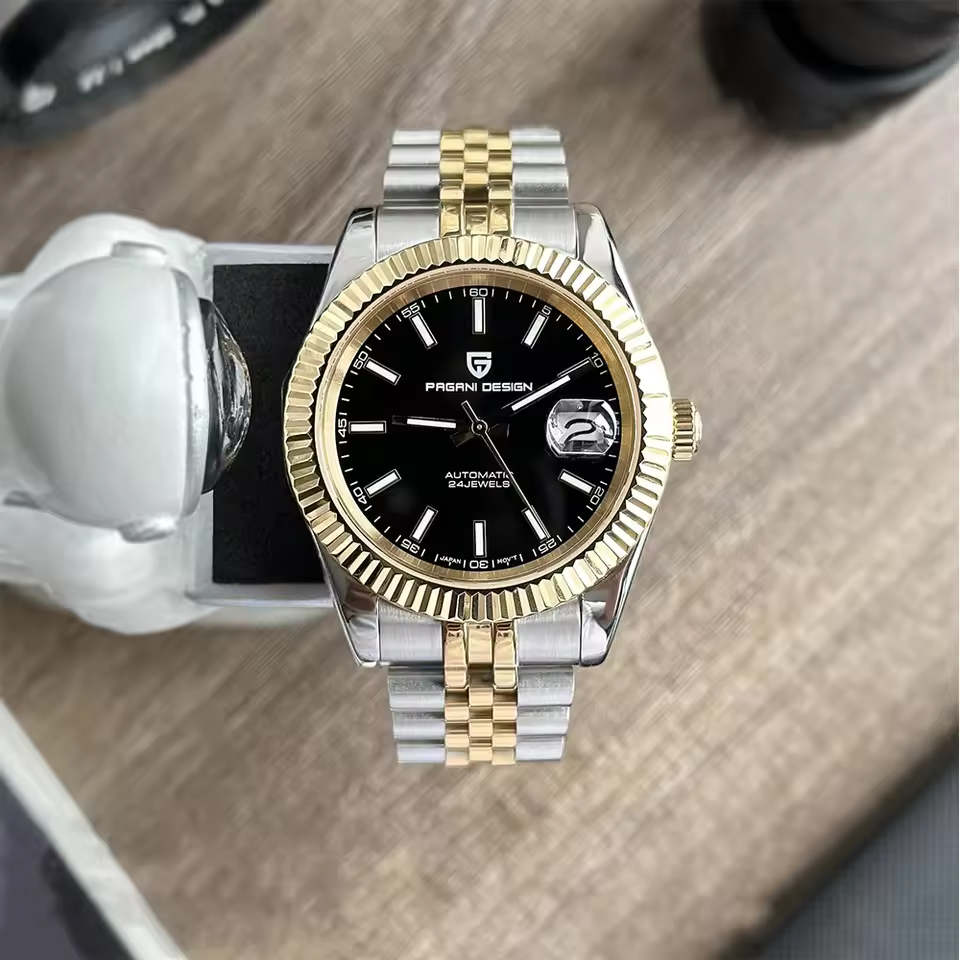
Comparing Durability and Maintenance
When picking a watch, how long it lasts and how much care it needs are big factors. Mechanical watches are known to last many years. They can even become family heirlooms, passed down through generations. Still, they need regular check-ups by a professional. Every few years, a service is a must. This keeps them running smoothly.
Quartz watches, on the other hand, win on easy care. They are less likely to need repairs. The battery will need changing, but this is simple and cheap. Such low maintenance makes them ideal for daily use. They are tough and can take life’s knocks without a fuss.
In summary, if you seek a watch that lasts long with a touch of legacy, go for mechanical. These watches demand care but reward you with longevity. If you prefer practicality, a quartz watch is a way. It offers reliability with little upkeep. The choice depends on what’s more important to you: tradition or convenience.
Accuracy and Precision in Timekeeping
One of the most critical aspects in choosing between a mechanical watch and a quartz watch is their accuracy. Mechanical watches, while steeped in tradition, are not as accurate as their quartz counterparts. Due to their reliance on springs and gears, they can gain or lose seconds over time. Even the best mechanical watches may drift by several seconds a day.
In contrast, quartz watches are the champions of precision. Their timekeeping is controlled by the consistent vibration of the quartz crystal. As a result, they are much more accurate than mechanical watches, often to within a few seconds a year. This accuracy is what draws many to prefer quartz on a daily basis.
For those who prioritize exact timekeeping, the quartz watch is likely the better choice. It is ideal for professionals who need precise time for meetings or events. A mechanical watch may appeal to someone who appreciates the art of watchmaking over strict accuracy. In the debate of mechanical watch vs quartz, consider how much precision matters in your timekeeping needs.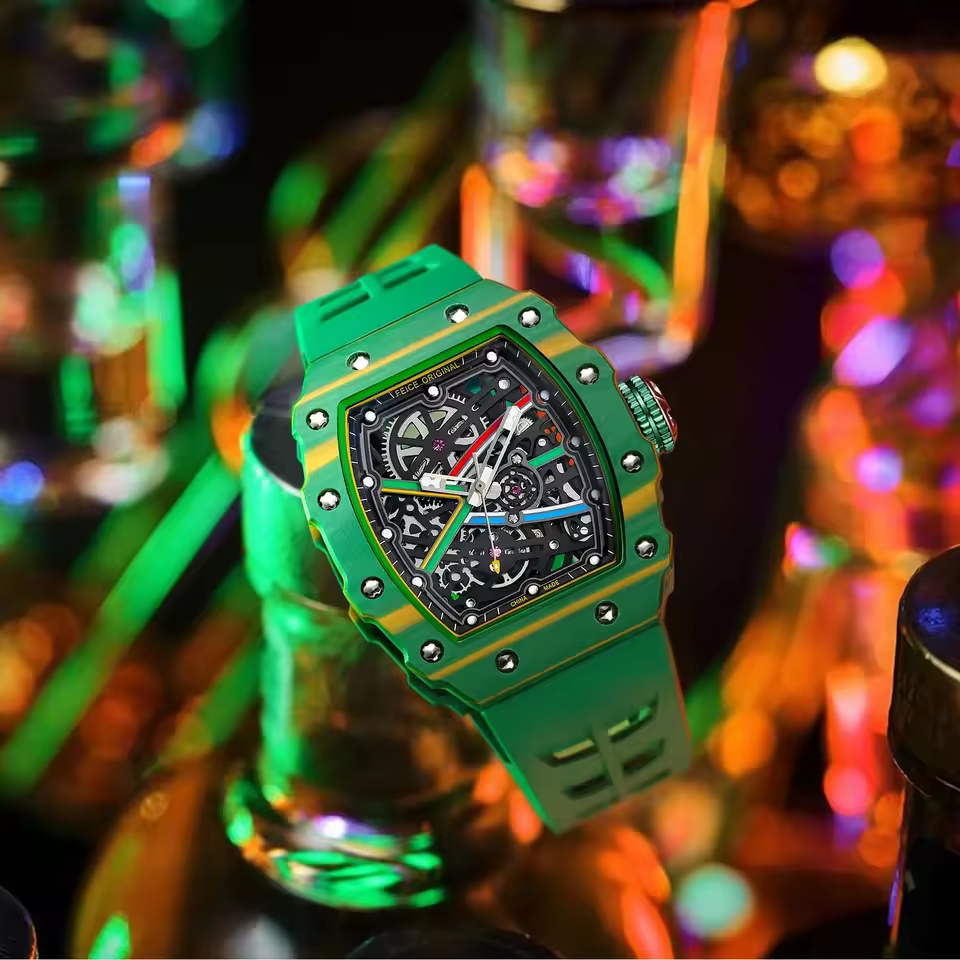
Style and Craftsmanship Considerations
When debating ‘mechanical watch vs quartz’, style plays a big role. Mechanical watches shine in this area. They often boast elaborate designs. Watch enthusiasts admire their clearly visible, intricate workings. These timepieces reflect a rich history of watchmaking. Wearers express a sense of luxury and prestige.
Mechanical watch dials may showcase gears and springs. This is known as the ‘skeleton’ style. It’s a window into the watch’s soul. Brands may also add handcrafted details. These include engravings and precious metals. Such add-ons contribute to the watch’s unique beauty.
On the flip side, quartz watches have a sleek, modern look. They offer a wide range of styles, from classic to contemporary. These watches suit those looking for a minimalistic or trendy feel. Many brands design quartz watches with fashion in mind.
In craftsmanship, mechanical watches win for complexity. They represent a long-standing tradition. Watchmakers spend countless hours assembling them. It’s a labor of love. Quartz watches, though, come from a different approach. Their making involves less manual labor. Assembly lines often handle their production.
In short, choose mechanical for style and craftsmanship that stand out. They speak of tradition and artistry. Quartz is for those who prefer modern, elegant simplicity. Both styles have their charm. Your choice should align with your personal taste and lifestyle.
Cost and Value for Money
When weighing mechanical watch vs quartz, cost is a critical factor. Mechanical watches often carry higher price tags. Their elaborate craftsmanship and the time required to assemble them reflect in their cost. Collectors and enthusiasts view these watches as investments. They cherish the art behind each piece.
Quartz watches often come at a more modest price. The materials and manufacturing process are less expensive. This makes them more accessible for everyday wear. For those on a budget, quartz offers value without sacrificing quality.
In terms of upkeep, mechanical watches have ongoing costs. Regular servicing by a professional can add up. But, these watches can last for decades. They can even gain value over time, especially if they’re collectible or from a renowned brand.
Quartz watches have minimal maintenance costs. Replacing the battery every few years is usually the only expense. But they may not have the same longevity or potential to appreciate in value.
In the long run, mechanical may offer a sense of lasting value. Quartz provides practicality and affordability right now. Your choice should consider both immediate costs and long-term value.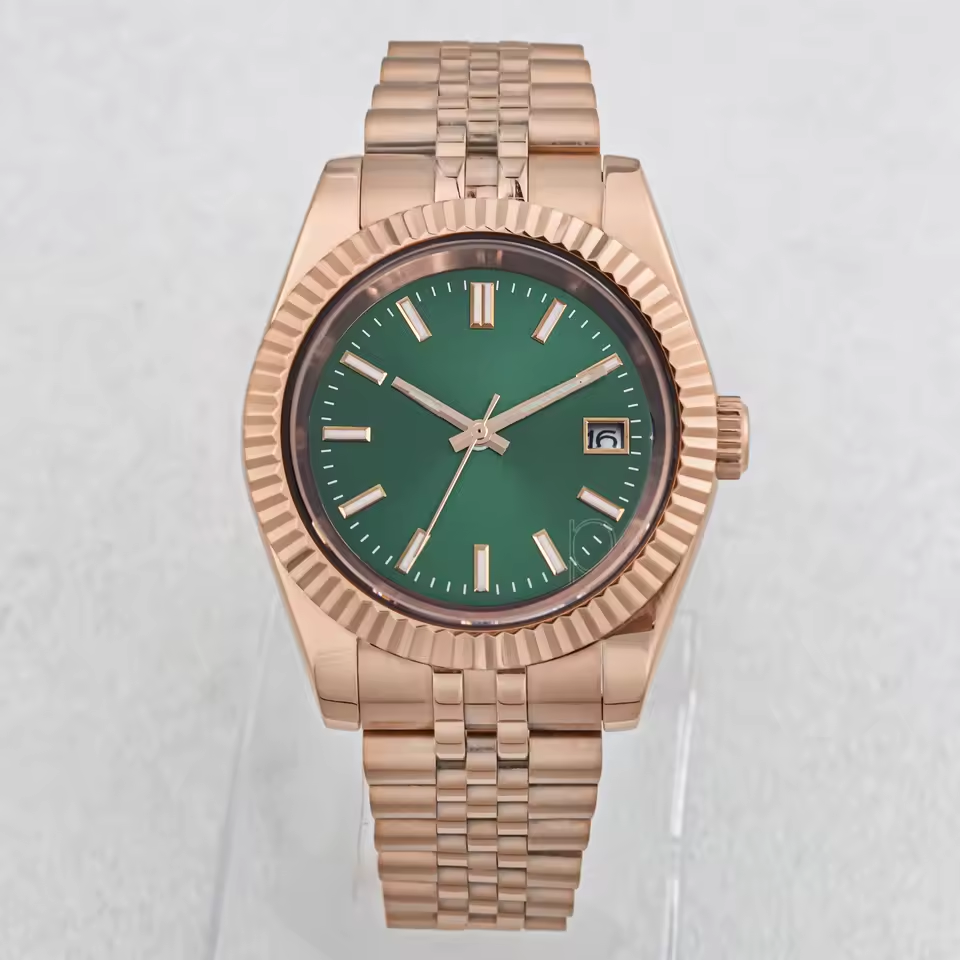
Environmental Impact and Sustainability
In the debate between mechanical watch vs quartz, the environmental aspect is increasingly relevant. Mechanical watches excel in sustainability. Their longevity means they can last generations with proper care. Fewer replacements reduce waste. Also, the absence of batteries equals less environmental harm from battery disposal. On the flip side, quartz watches need battery changes. These batteries, if not disposed of correctly, can harm the environment.
Nevertheless, some quartz watches have solar-powered options. These reduce the need for battery replacements, increasing their eco-friendliness. When it comes to materials, both watch types can be crafted from sustainable sources. However, the mass production associated with some quartz watches may not always align with green practices.
Ultimately, if environmental impact is a massive factor for you, consider a mechanical watch for long-term sustainability. Or, if you prefer quartz, look for brands that offer solar power or eco-friendly batteries. Making a responsible choice reflects not just on your style, but on your commitment to the planet.
Conclusion: Factors to Consider When Choosing
When faced with the mechanical watch vs quartz debate, your choice boils down to personal preference, lifestyle, and values. Here’s a recap of key points to guide your decision:
- Lifestyle: Do you cherish tradition and craftsmanship? A mechanical watch speaks to that. If you want something practical for daily use, a quartz watch fits the bill.
- Precision: Need your watch to be highly accurate? Quartz watches win with their superior timekeeping. Mechanical watches, though less accurate, offer a connection to watchmaking artistry.
- Maintenance: Mechanical watches demand regular care and servicing. Quartz watches are low-maintenance with just battery changes needed every so often.
- Value for Money: Mechanical watches may cost more upfront and in upkeep. Yet, they can be long-lasting and valuable over time. Quartz watches are more budget-friendly and low cost in maintenance.
- Style: Choose mechanical for traditional elegance and detailed artistry. Quartz offers modern, trendy, and diverse designs for a contemporary look.
- Environmental Impact: Consider mechanical watches for sustainability since they last longer and don’t need batteries. Look for solar-powered quartz watches to minimize environmental footprint.
In the end, whether you lean towards a mechanical or quartz watch, ensure it aligns with what you value most. Whether it’s precision, ease of use, style, or sustainability, your watch should be a companion that not only keeps time but also complements your life and principles.
